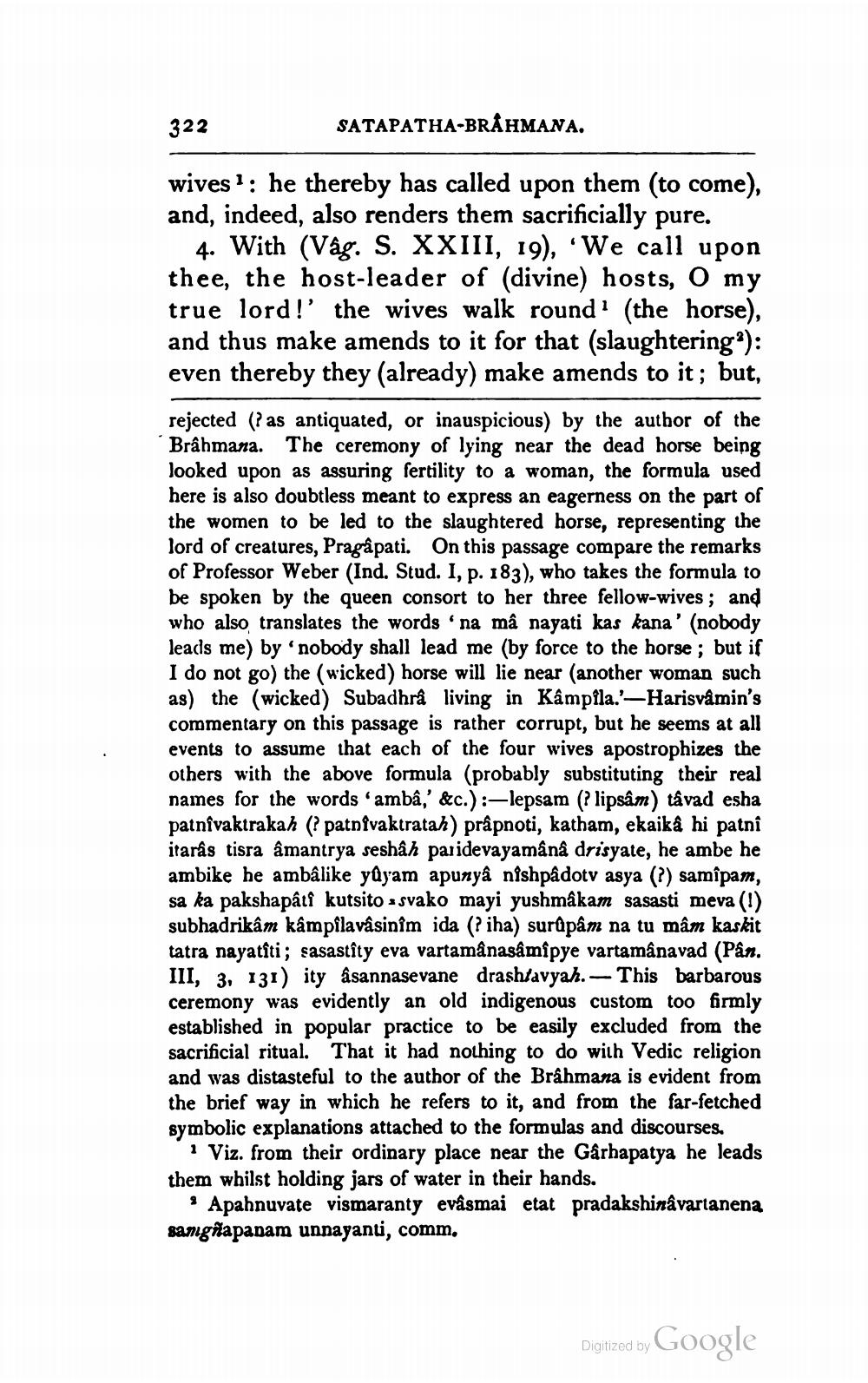________________
322
SATAPATHA-BRAHMANA.
wives 1: he thereby has called upon them (to come), and, indeed, also renders them sacrificially pure.
4. With (Vág. S. XXIII, 19), We call upon thee, the host-leader of (divine) hosts, O my true lord !' the wives walk round' (the horse), and thus make amends to it for that (slaughtering): even thereby they (already) make amends to it; but,
rejected (? as antiquated, or inauspicious) by the author of the Brâhmana. The ceremony of lying near the dead horse being looked upon as assuring fertility to a woman, the formula used here is also doubtless meant to express an eagerness on the part of the women to be led to the slaughtered horse, representing the lord of creatures, Pragâpati. On this passage compare the remarks of Professor Weber (Ind. Stud. I, p. 183), who takes the formula to be spoken by the queen consort to her three fellow-wives; and who also translates the words 'na mâ nayati kas kana' (nobody leads me) by 'nobody shall lead me (by force to the horse ; but if I do not go) the (wicked) horse will lie near (another woman such as) the (wicked) Subadhrá living in Kâmpila.'—Harisvåmin's commentary on this passage is rather corrupt, but he seems at all events to assume that each of the four wives apostrophizes the others with the above formula (probably substituting their real names for the words 'amba,' &c.) :-lepsam ( lipsâm) tavad esha patnîvaktrakah (patnivaktratah) prâpnoti, katham, ekaikå hi patni itarâs tisra âmantrya seshåh paridevayamanâ drisyate, he ambe he ambike he ambâlike yâyam apunya nishpadotv asya (?) samîpam, sa ka pakshapati kutsito - svako mayi yushmäkam sasasti meva (1) subhadrikâm kampilavâsinim ida (? iha) surūpām na tu mâm kaskit tatra nayatîti; sasastîty eva vartamânasâmîpye vartamânavad (Pån. III, 3, 131) ity asannasevane drashlavyah. - This barbarous ceremony was evidently an old indigenous custom too firmly established in popular practice to be easily excluded from the sacrificial ritual. That it had nothing to do with Vedic religion and was distasteful to the author of the Brahmana is evident from the brief way in which he refers to it, and from the far-fetched symbolic explanations attached to the formulas and discourses.
1 Viz. from their ordinary place near the Garhapatya he leads them whilst holding jars of water in their hands.
Apahnuvate vismaranty evâsmai etat pradakshinavartanena samgħapapam unnayanti, comm.
Digitized by Google




